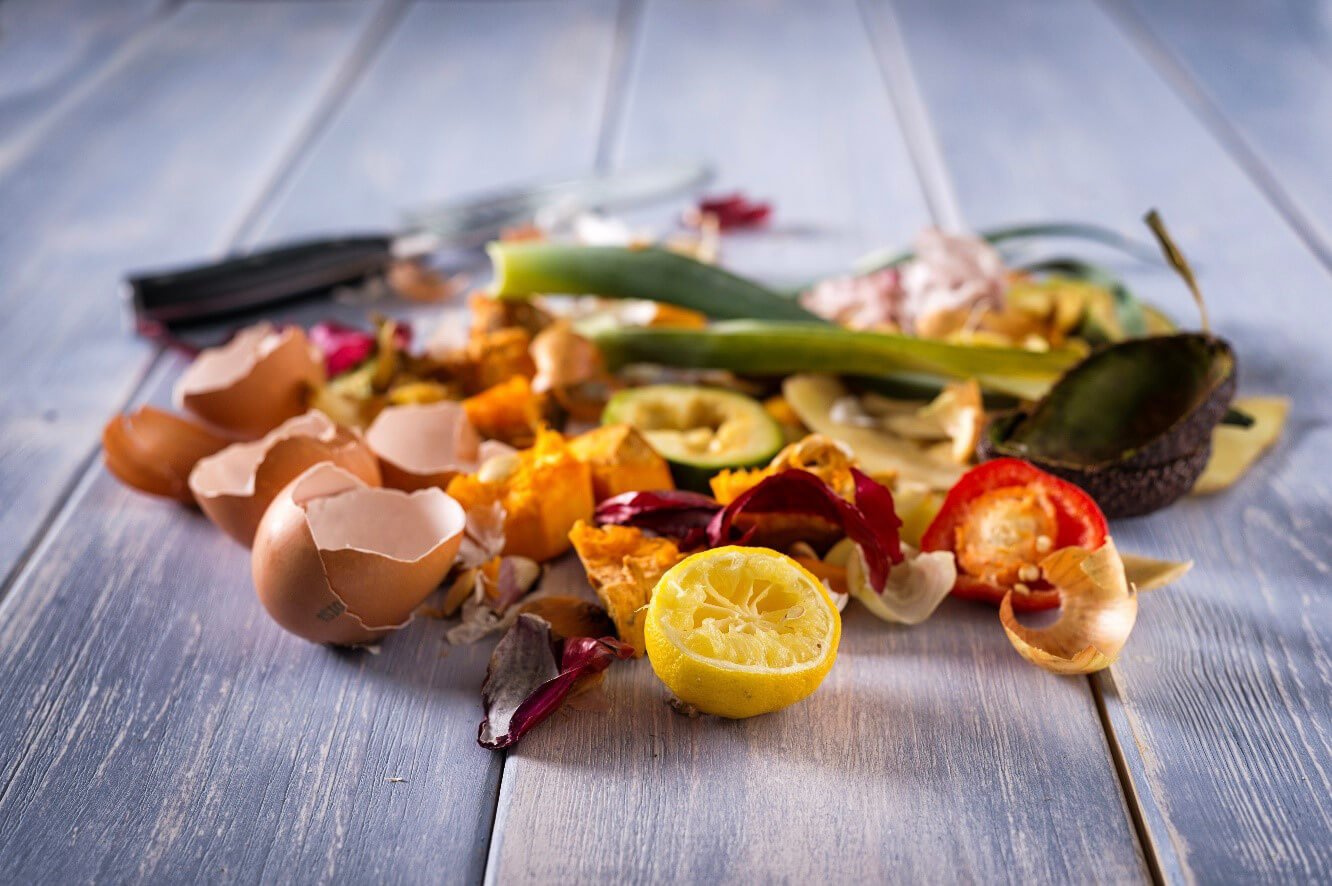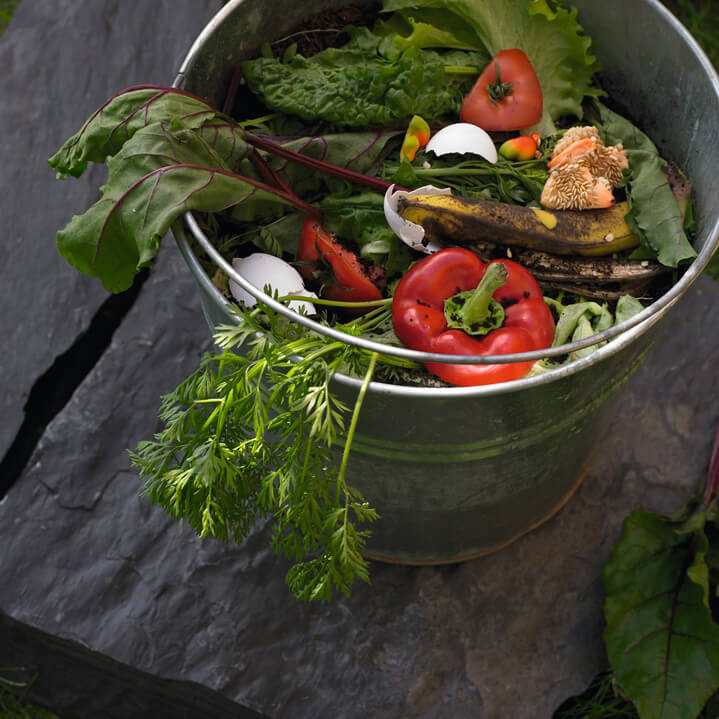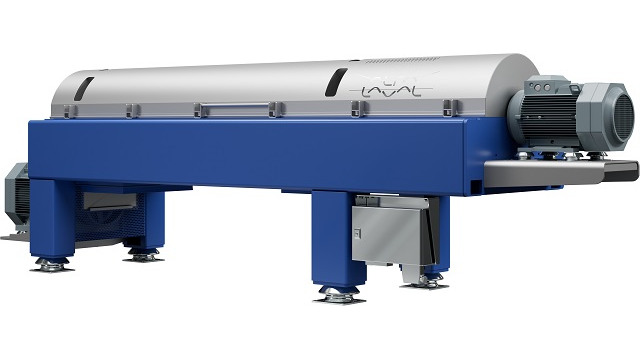BioteCH4 recovers oil from food waste to create a new revenue stream
A UK-based waste-management company uses cutting-edge decanter separation technology to tap into a brand-new revenue stream – turning waste oils and fats into high-quality feedstock for the biofuel industry.
DATE 2024-03-21
BioteCH4 is based in Lincolnshire, in the east of the UK. It owns and operates anaerobic digestion facilities across six sites countrywide. These take commercial and domestic food waste from various sources to produce biogas, which is used to generate electricity.
In 2022, the company handled 557,000 tonnes of food waste from local authorities, food manufacturers and producers, waste management companies, waste brokers and food distributors. This was then processed to generate 280,000 MWh of electricity – enough to power 78,000 UK homes for a year.
“As one of the leading food waste operators in the UK, we’re always looking at innovative ways of achieving enhancing our existing sustainable methods of food waste recycling. The fluctuation in oil prices over the last few years and the large biodiesel companies hungry for new sources of sustainable waste-oil streams meant we were keen to explore ideas we had with the market leading force that is Alfa Laval. We’ve always known the promising potential of harnessing the removal of waste oils from food waste, but this alliance has allowed us to push this one stage further,” says Lee Dobinson, Chief Commercial Officer, Bisviridi.
The opportunity to explore a brand-new revenue stream came in 2020 when Alfa Laval UK approached the company with a proposal for an innovative solution, which would not only tap into a new revenue stream but also increase the wider range of sustainable outcomes and therefore revenue streams for the existing process.
Alan Farr, Food Separation & Food Systems Sales Engineer with Alfa Laval UK, began talking to BioteCH4 about the potential of using decanter technology to separate the oils and fats from the food waste with a view to sell it to biofuel processors.
Initial interest was high, and BioteCH4 decided to undertake a 12-month validation. For this purpose, a skid-mounted Prodec Oil Plus decanter was installed at the company’s Hemswell facility.

“They needed to ensure that the oil removal wouldn’t affect the anaerobic digestion process,” Alan explains. “What Bisviridi have learnt from the trials and regular tweaks is that the process has to be constantly monitored and adjusted to manage the best possible outcomes.”
The project was a world-first for Alfa Laval in this application, and there were a lot of unknowns at the beginning. Would it work? Would sufficient oil be recovered? Would the machine cope with this challenging application? Would removing the oil impact biogas production?
“As it turned out, the trial was a big success,” Alan recalls. “In 12 months, we satisfied all the customer’s reservations. The decanter produces up to 300 litres of oil per hour, and there is no adverse effect on biogas production. In fact, the oil produced is even better quality than was initially expected. There were manageable levels of foam, the foaming settles as the biology adapts and becomes used to it, and the decanter also handled particles such as plastic.”
In December 2021, BioteCH4 confirmed an order for five skid-mounted Prodec Oil Plus decanters – two of these are now in operation, with the final set for imminent delivery.
Alan says it is a win for all concerned: “BioteCH4 are now recovering a sustainable oil stream and bringing in extra revenue. The technical oil (including biogas) companies are happy because the government offers subsidies and support if they can find brand-new sustainable sources of waste oil. So, everybody wins. Everybody is pushing in the same direction. It’s about sustainability, and it’s about making more value from waste.”
Bisviridi and Alfa Laval partnership
The partnership between Bisviridi and Alfa Laval has developed over the last three years and resulted in the patented process of the novelty of an integration and improvement of the anaerobic digestion process, by Bisviridi part of the BioteCH4 group. This innovation has resulted in an excellent sustainable solution for BioteCH4 and their oil extraction process by using Alfa Laval Prodec Oil Plus decanter.
This patented technology is specific to the anaerobic digestion process, years of experience from the food waste industry has gone into developing this novel integration. Bisviridi has partnered with AL and patented the process which is a brilliant innovative solution for food waste processors, BioteCH4.
主要なテクノロジー
Video with BioteCH4

The world has experienced a severe shortage of edible oils for human consumption as well as used cooking oil for biofuel production since the beginning of the war in Ukraine, which effectively removed a third of the world’s entire production of sunflower oil from the market. This prompted Indonesia to introduce a ban on exporting palm oil, which is also used for biofuel production. Demand for HVO is projected to grow by 28% over 2021-2026 by the IEA.
Biofuel produced from used organic waste, including food waste, has a substantially lower carbon footprint. It enables municipalities and anaerobic digestion operators to turn a costly waste issue into a revenue stream – especially considering the high demand for used cooking oil and fats for biofuel production. A 1,000 litre of diesel will emit 3.6 tonnes of carbon dioxide. In contrast, the emission of 1,000 litres of hydrotreated vegetable oil (HVO) made from renewable feedstock such as used cooking oil, tallow or other fats is only 195 kg of CO2e. (Source: IEA)

Diverting oil stream for maximum recovery using Oil Plus decanter can generate an additional 300 litres of oil per hour, without compromising methane production. The payback period in any size of anaerobic digestion plant is less than a year.

By extracting valuable oil such as used cooking oil from recycled organic waste, a considerable amount of oil is recovered with close-to-perfect purity, ready to be used for the technical oil market, meeting the growing demand for sustainable aviation fuel.

